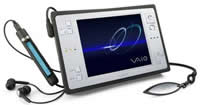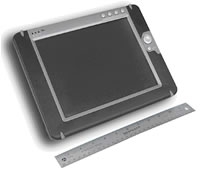The age of interactive gaming is well upon us. And, if a new survey undertaken on behalf of BT is to believed, traditional forms of entertainment such as the TV and board games are being overlooked in favour of newer, more interactive technology. This is in contrast to those who feel that there’s nothing as exciting as looting from a half-soaked Monopoly banker or finding the missing piece of a jigsaw from the back of the family sofa.
The research shows that rather than relaxing on the sofa in front of the TV watching programmes, over half of all the online console gamers questioned would rather give up the TV than their online games. And it’s not just committed gamers who feel this way – approximately 77 per cent of 11-16 year olds said they would rather play computer games than traditional board games.
The massive uptake of online games is mainly due to the rollout of broadband across most of the country, and the fact that you can play against, and talk to, gamers from all over the world within the same game. Global rivalries are strong online – apparently – with a third of UK gamers (31 per cent) choosing the US as the nation they most like to beat online, followed by the French (18 per cent) and Germans (11 per cent).
An online community atmosphere also attracts and retains gamers. Rather than converse face-to-face in real-life, some 58 per cent like to play online against new people and just over a quarter prefer online gaming as they compete against real people, whilst half enjoy it as it brings people together, according to the survey. Moreover, 17 per cent of online gamers would find a world without online gaming almost impossible to live in. Great in some ways, tragic in others.
The crux of the research comes down to BT attempting to appear as the ones who drive the uptake of online console gaming in the UK with the sole purpose of selling more broadband. Duncan Ingram, managing director broadband and Internet services BT Retail, of BT said: “This research shows that consumers are looking for more interaction when it comes to home entertainment. The advent of broadband brings a whole new social experience to console gaming by allowing gamers to take their consoles online and play against a community of gamers from all over the world.”
 The latest addition to Sony’s VAIO range of personal computers is really, really different. The VAIO VGN-U750P (around US$2,000) is a palmtop computer that also goes under the more firendly name of the Vaio U and weighs considerably less than the average laptop (167x108x26mm, 550g), yet boasts a fully fledged Intel-based environment running Windows XP Professional SP2 as opposed to the specialised platforms powering other handhelds, such as Palm OS, Windows Mobile or even Windows XP Tablet PC Edition.
The latest addition to Sony’s VAIO range of personal computers is really, really different. The VAIO VGN-U750P (around US$2,000) is a palmtop computer that also goes under the more firendly name of the Vaio U and weighs considerably less than the average laptop (167x108x26mm, 550g), yet boasts a fully fledged Intel-based environment running Windows XP Professional SP2 as opposed to the specialised platforms powering other handhelds, such as Palm OS, Windows Mobile or even Windows XP Tablet PC Edition. Designed for law enforcement, perimeter security and long-range video links,
Designed for law enforcement, perimeter security and long-range video links,